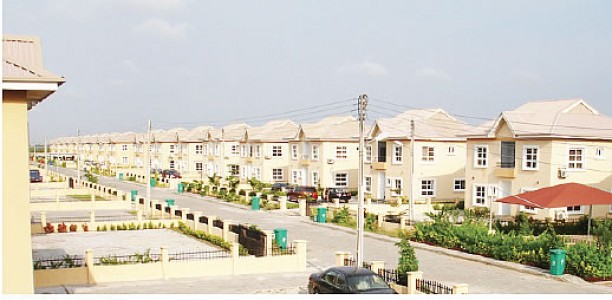 Pay-as-you-build as a strategy for buying a home is, increasingly, gaining traction in the Nigerian property market as economic recession in Nigeria, which is getting worse by the day, continues to erode consumers’ buying power.
Pay-as-you-build as a strategy for buying a home is, increasingly, gaining traction in the Nigerian property market as economic recession in Nigeria, which is getting worse by the day, continues to erode consumers’ buying power.Before now, quite a good number of people could walk into the market and buy their homes, but not any longer as slowing economic activities, falling value of the naira and galloping inflation have not only reduced individual and household income but also eroded the value of what is available.
The situation in the property market confirms the crippling impact of recession as, according to Bismarck Rewane, CEO, Financial Derivatives Company, in his recent economic review, vacancy rates remain stubbornly high at 74 percent while advert rates of discount housing have gone up considerably.
“Tenants are downsizing homes and looking for cheaper housing, the ratio of ‘to rent’ and ‘for sale’ rate is 1:2; expatriates have adopted Spartan lifestyle in terms of the type of housing they now live in, and new home buying strategies like instalment payment and pay-as-you-build are adopted,” Rewane said.
This strategy had been almost an exclusive preserve of Lekki Gardens Estates, which adopted it as part of its affordable housing schemes with the belief that giving buyers opportunity to buy houses by paying for same as they are capable of is a way of making the houses affordable for them.
“There is no house we build that is not sold; we allow people to pay according to their income flow, because not everybody can walk into our office and drop a cheque for the house he or she wants to buy. This is part of what we do to make homeownership easy and affordable for our customers,” Richard Nyong, the company’s CEO, disclosed in an interview.
With what it calls ‘funding engineering,’ Suru Homes has also responded to the recession, allowing a buyer to pay 50 percent of the value of the house and giving him one year to pay the balance. The belief is that, apart from stimulating demand, this also saves the buyer the burden of looking for huge capital requirement for outright purchase.
“Though property prices have remained relatively stable, demand has dropped considerably and for that reason, people are being clever on how to fund who wants to buy,” Edward Akinlade, the GMD, Suru Group Limited, noted in an interview, adding, “this is a win-win situation because the seller gets customers who ordinarily would not have come, while the buyer is encouraged to buy at a time he/she would not have bought.”
The Grenadines Homes, which is planning a112-unit development called The Coral with a unit cost of N76 million, has also adopted the pay-as-you-build strategy, requiring buyers to make 30 percent initial deposit and the balance spread over 24 months. “Even this 30 percent initial deposit is not paid at once,” Olalekan Amusan, head of sales, said, explaining that as an expression of interest, “the buyer pays 10 percent deposit now, another 10 percent after three months, and the final 10 percent after six months of first payment.”
Analysts are of the view that aside recession, the real estate sector in Nigeria has other challenges one of which is the issue of regulationm which Rewane said had failed, saying “the sector does not have a regulatory body that directly impacts market performance.
“Government regulations indirectly affect prices and prevent market efficiency; property tax and land use charges are tremendously high; value of housing is overstated; regulators do not provide enabling environment for investors, and rent control has no significant effect on rental prices leading to increasing vacancy rates.”
However, though vacancy rate remains high, demand for housing as a necessity is expected to pick up in 2017, he hoped.










